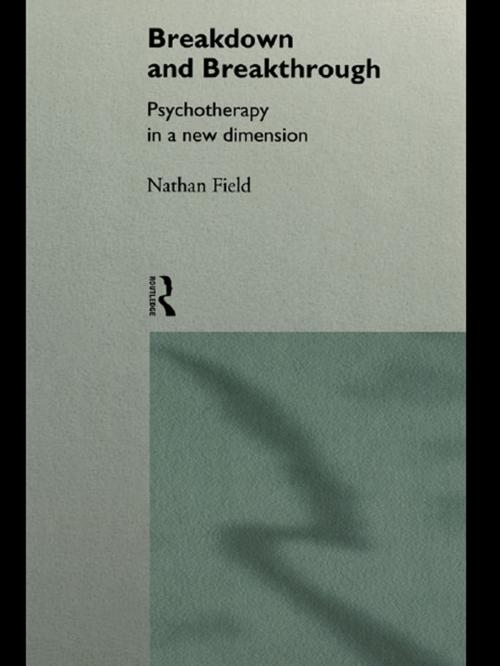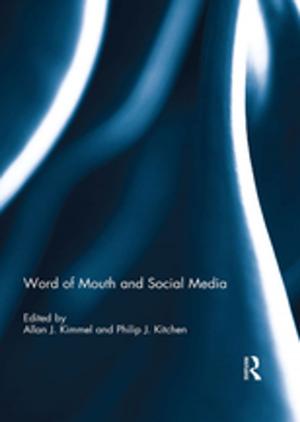Breakdown and Breakthrough
Psychotherapy in a New Dimension
Nonfiction, Health & Well Being, Psychology, Mental Health| Author: | Nathan Field | ISBN: | 9781134837441 |
| Publisher: | Taylor and Francis | Publication: | June 1, 2002 |
| Imprint: | Routledge | Language: | English |
| Author: | Nathan Field |
| ISBN: | 9781134837441 |
| Publisher: | Taylor and Francis |
| Publication: | June 1, 2002 |
| Imprint: | Routledge |
| Language: | English |
Breakdown and Breakthrough examines the essential role of regression in the patient's recovery from mental illness. In light of this Nathan Field reassesses the role of the therapist tracing psychotherapy back to its earliest spiritual roots and comparing modern analytic methods with ancient practices of healing and exorcism. The author uses vivid examples from his psychotherapeutic practice to show how, with the apparent breakdown of the therapeutic method itself, patients can break through to a new level of functioning. The book goes on to consider how psychotherapy has been affected by fundamental developments in twentieth century science, such as the move from old, classical assumptions of linear causation to non-linear complexity from reductionism to a holistic systems approach and from mental mechanisms to acknowledging the mysteries of unconscious interaction. Taking up the radical vision originally proposed by Carl Jung and later fostered by eminent psychotherapists such as Winnicott and Bion, the author shows how psychotherapy can be reframed to admit the existence of a psychological fourth dimension. Nathan Field reappraises ideas of health and pathology, psychoanalysis and healing, sex and spirituality in light of a dramatic shift in the way we understand ourselves. How this shift alters the shape of psychotherapy in the twenty-first century is the challenge the practitioners, teachers and trainees must all address.
Breakdown and Breakthrough examines the essential role of regression in the patient's recovery from mental illness. In light of this Nathan Field reassesses the role of the therapist tracing psychotherapy back to its earliest spiritual roots and comparing modern analytic methods with ancient practices of healing and exorcism. The author uses vivid examples from his psychotherapeutic practice to show how, with the apparent breakdown of the therapeutic method itself, patients can break through to a new level of functioning. The book goes on to consider how psychotherapy has been affected by fundamental developments in twentieth century science, such as the move from old, classical assumptions of linear causation to non-linear complexity from reductionism to a holistic systems approach and from mental mechanisms to acknowledging the mysteries of unconscious interaction. Taking up the radical vision originally proposed by Carl Jung and later fostered by eminent psychotherapists such as Winnicott and Bion, the author shows how psychotherapy can be reframed to admit the existence of a psychological fourth dimension. Nathan Field reappraises ideas of health and pathology, psychoanalysis and healing, sex and spirituality in light of a dramatic shift in the way we understand ourselves. How this shift alters the shape of psychotherapy in the twenty-first century is the challenge the practitioners, teachers and trainees must all address.















